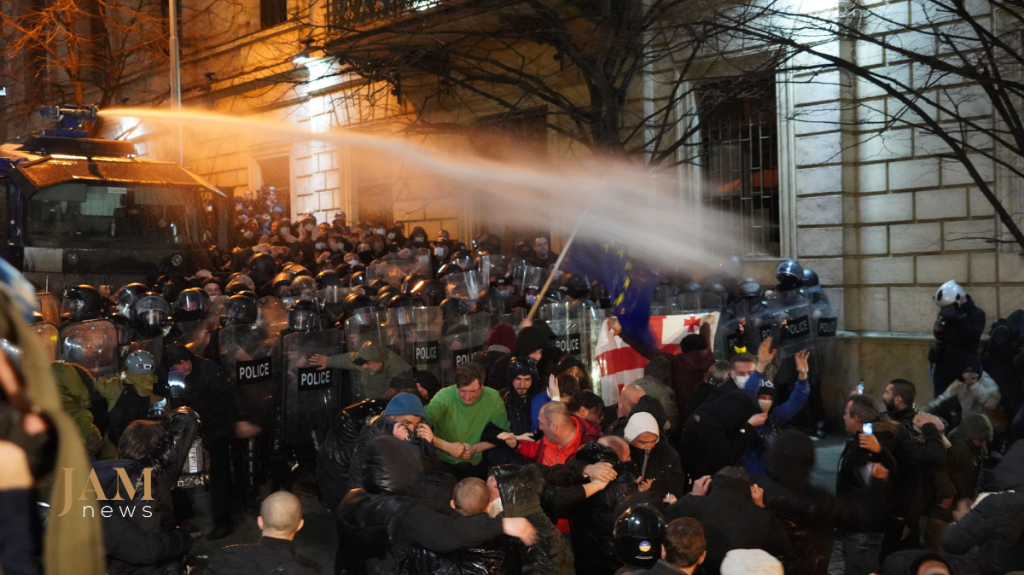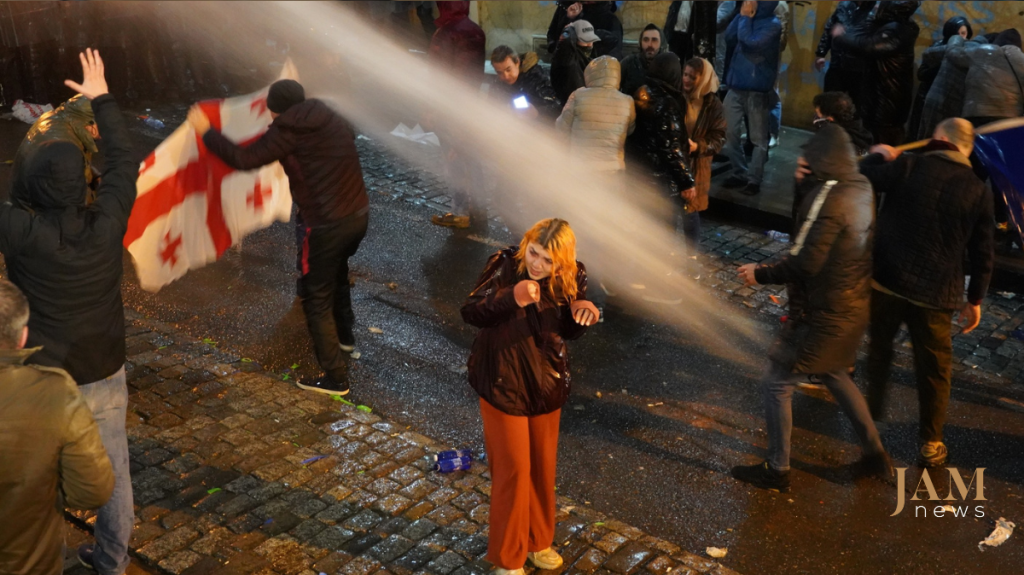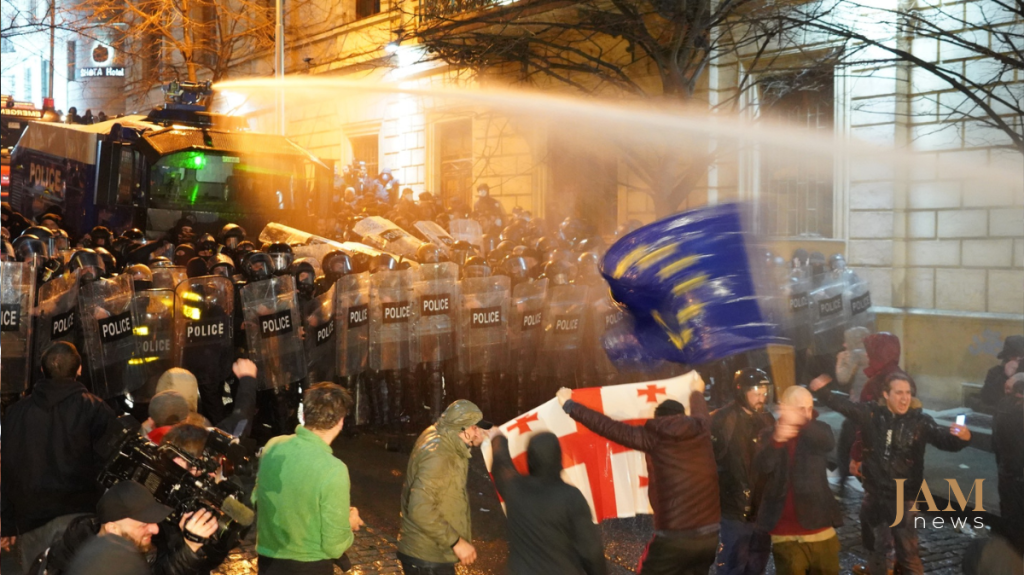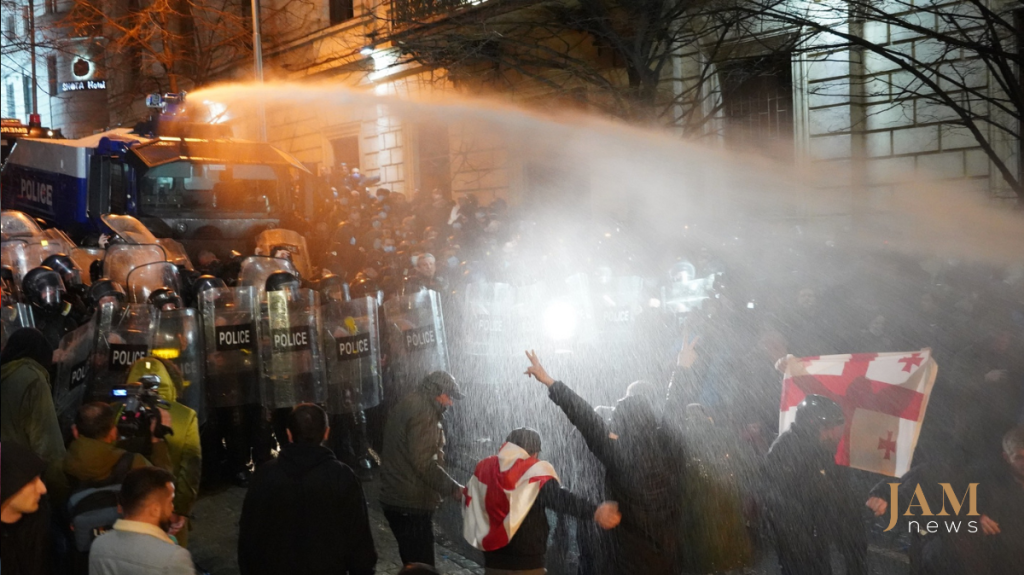Gas, water cannons, arrests - Tbilisi against the law "on foreign agents." Chronology and many photos
Tbilisi against the law “on foreign agents”
On March 7, the day when the Georgian parliament was discussing in the first reading the scandalous draft law “on foreign agents”, which is considered an analogue of the Russian law, tens of thousands of people gathered near the parliament building in Tbilisi. “No to the Russian law!”, “No to the Russian regime!”, “Stand on the right side of history!” – such slogans were held by those gathered who protested against the hasty adoption of the law in the first reading.
The action was dispersed by special forces using tear gas and water cannons. Dozens of the wounded were hospitalized. The police detained about 60 people.
- Law on foreign agents in Georgia: everything that is known at the moment
- Foreign agents bill adopted in Georgia in first reading. Rally in Tbilisi dispersed with water cannons and tear gas
- Protests against the “law on foreign agents” continue in Georgia. Opinions of those opposed
How events unfolded in Georgia – a lot of photos and videos of one of the most emotional actions of recent times.
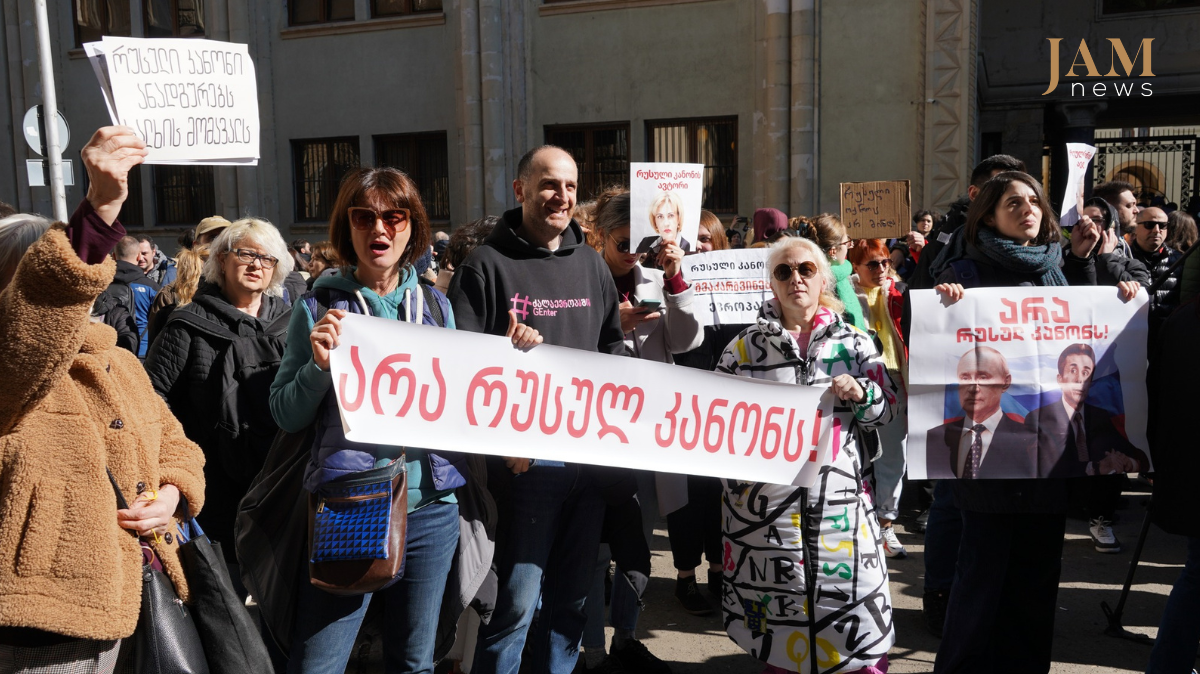
The action began at the parliament building on the morning of March 7. In the morning, the bill, the purpose of which is to completely discredit the civil sector and the media, was discussed in the parliamentary committee on legal issues. The discussion took place against the backdrop of protests from representatives of the media, the non-governmental sector and citizens.
This protest has been going on for two weeks now. The actions began immediately after the People’s Power movement, which formally separated from the ruling party, initiated consideration of the bill in parliament.
Security measures were tightened in Parliament. Many journalists from opposition publications have had their parliamentary accreditation revoked.
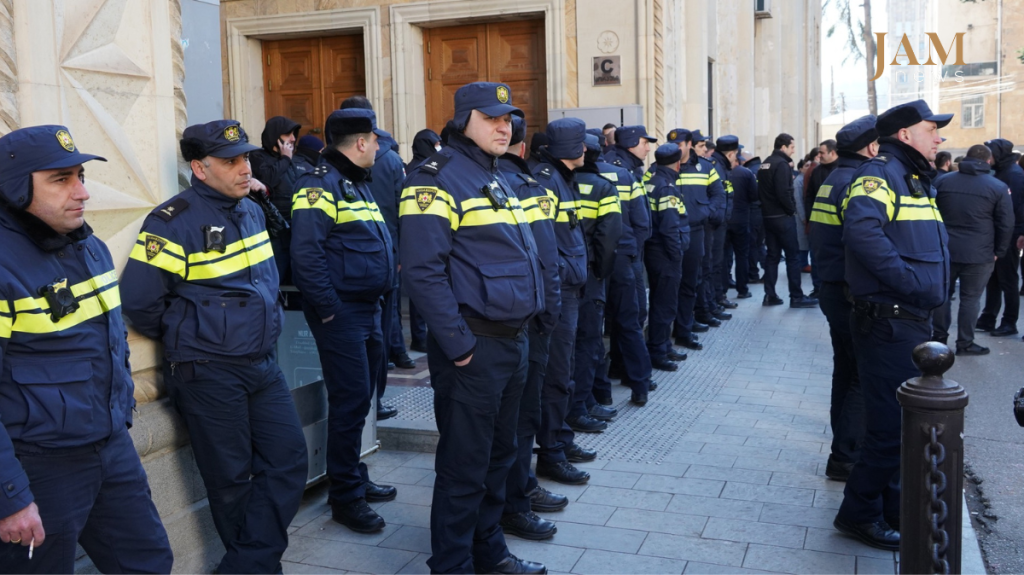
At the end of the day on March 7, it became known that on the same day the first version of the bill was considered in the first reading, although the meeting on this issue was originally scheduled for March 9.
As soon as this became known, people began to come to the Parliament. An unprecedented number of police were mobilized at the entrance to the building.
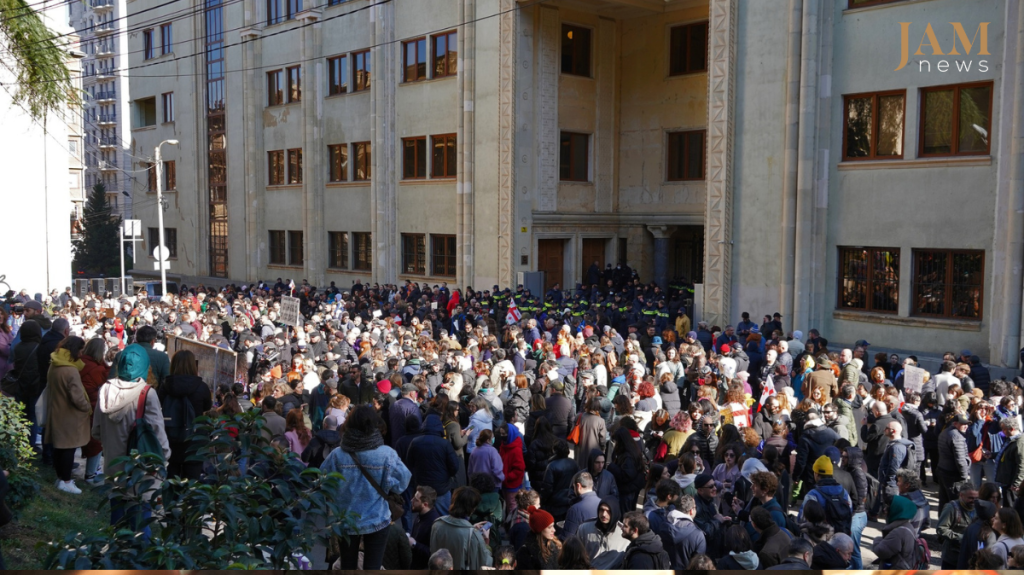
At the same time, two actions were announced in the evening. Around 18:00, the rally participants began to gather in front of the parliament. A stream of people who could not get to the building moved towards its facade.
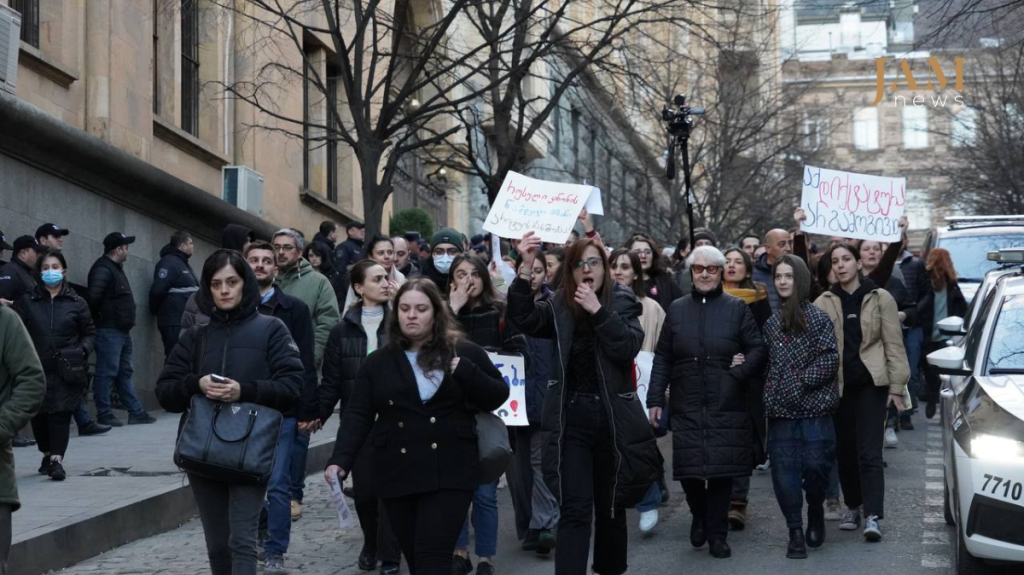
Rustaveli Avenue was blocked.
The people who spoke, and most of them were ordinary citizens, said that the government should not be allowed to adopt a “Russian law” that would irrevocably turn Georgia off the European path and return the country to Russia’s orbit.
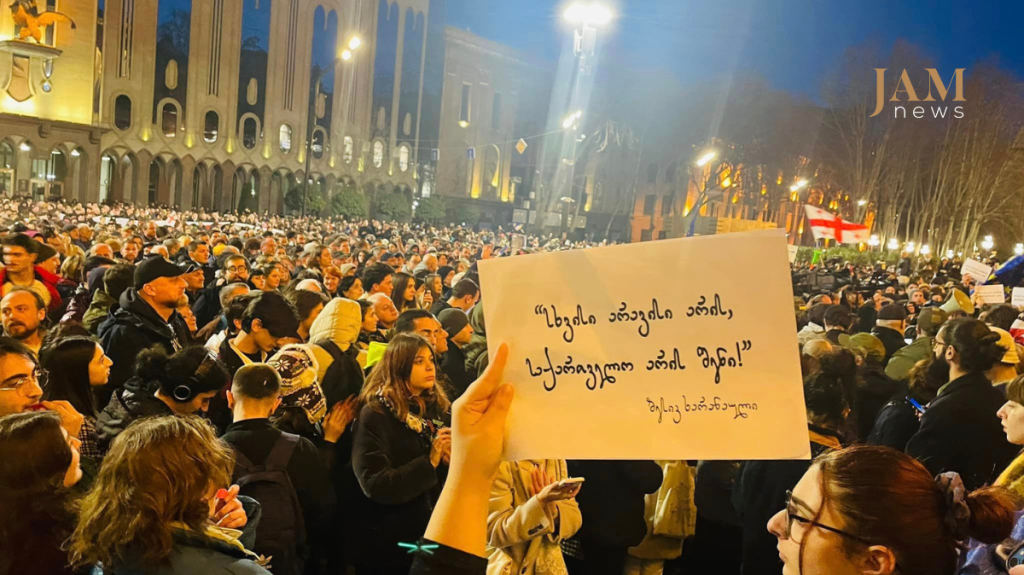
In the evening, it also became known that a special forces detachment was mobilized in the area of the parliament building along with hundreds of policemen.
The speakers warned the audience not to pay attention to provocations, not to confront law enforcement officers and not to give special forces reasons to attack.
From the loudspeakers constantly heard: “Keep calm.”
In response to the first message that the authorities were going to start cracking down on the action, the protesters responded with the Georgian anthem.
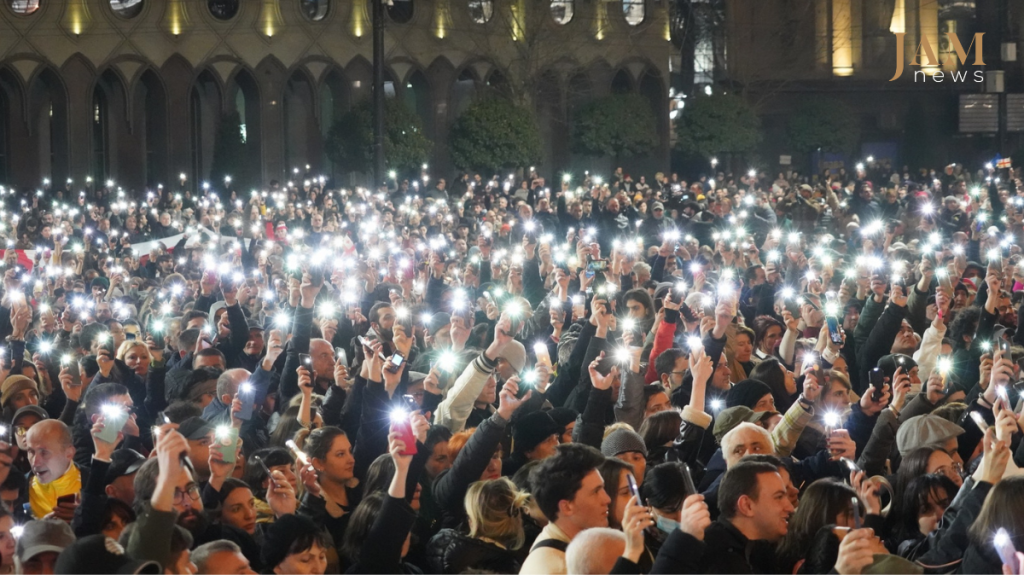
Toward evening, when the protesters learned that the Parliament had adopted the bill “On Foreign Influence” in the first reading (76 votes in favor, 13 against), the demonstrators began to show emotions.
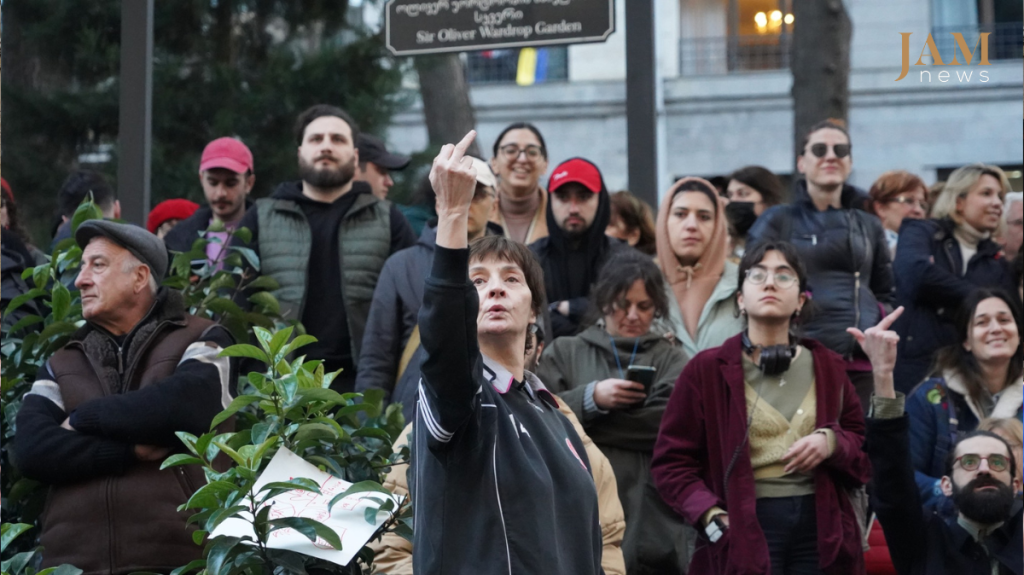
One of the activists called on the audience to besiege the parliament – to do it calmly, with mobile phones raised in their hands, so that everyone who was not at the rally could see what was happening on Rustaveli Avenue at that time.
Some of the rally participants went to the entrance to the parliament.
A few minutes later it became known that the special forces used tear gas and water cannons against those who were moving towards the parliament.
The first ambulances began to appear.
The flow of people slowly moving towards the entrance to the building was stopped by special forces with the help of water cannons and tear gas.
Later it became known that in this way exits from the building were freed for those parliamentarians who supported the law.
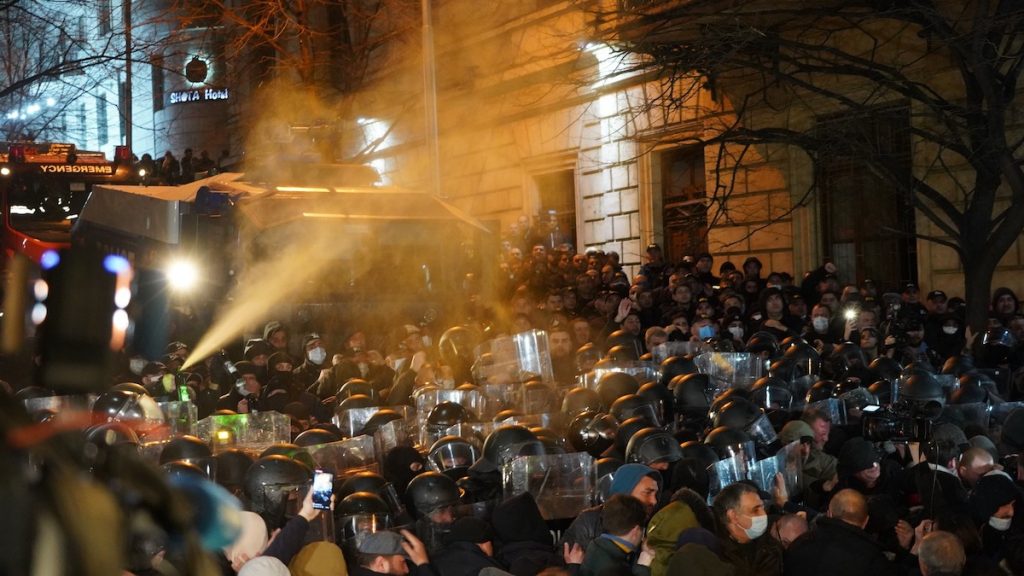
Despite the fact that the special forces increasingly used gas, people did not disperse.
Against this background, a monotonous voice did not stop, warning the demonstrators that the police would disperse the demonstration.
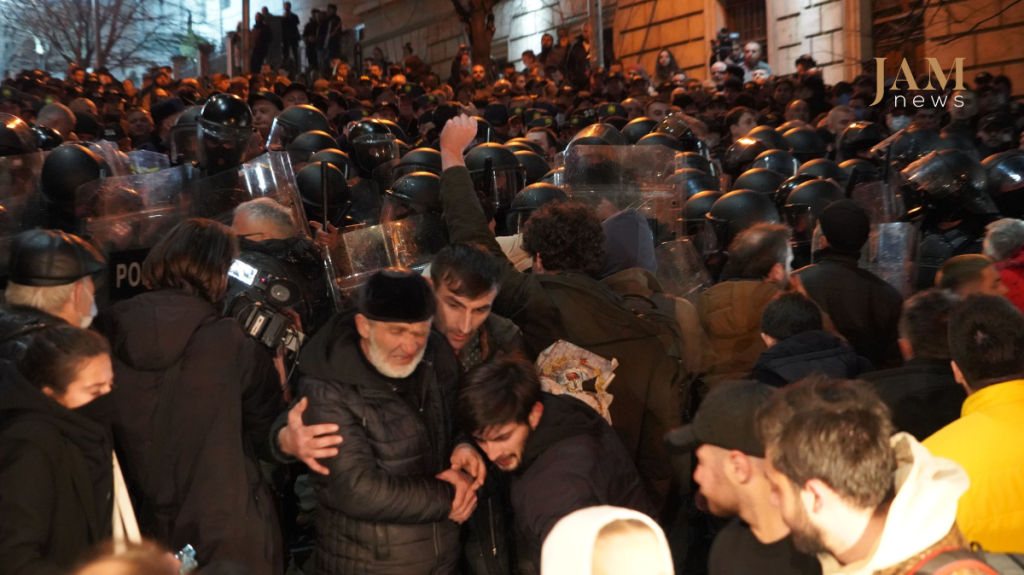
The action lasted until midnight. After each action of the special forces, the rally participants again gathered on Rustaveli Avenue. They said that the water used by the commandos burned people’s eyes. Many wrote on social networks that the contents of the water cannons were mixed with tear gas.
Late at night, the police began to detain the protesters. Videos appeared on social networks of how police pursued protesters and sent them to minibuses. The police also started escorting people out of the Kashveti temple where the protesters were hiding.
According to the Ministry of Internal Affairs, on the night of March 7-8, the police detained 66 people. They are charged with petty hooliganism and disobedience to the police.
